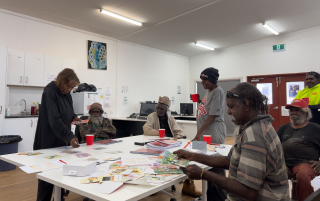17 December 2020 – At least 14% of all people aged 60 years and over ̶- more than 142 million people ̶- are currently unable to meet all their basic daily needs according to the Baseline report for the Decade of Healthy Ageing, released by the World Health Organization today.
The Baseline report brings together data available for measuring healthy ageing, defined by WHO as “the process of developing and maintaining the functional ability that enables well-being in older age.” Optimizing “functional ability” is the goal of the Decade of Healthy Ageing, which begins in 2021 and addresses five interrelated abilities that all older people should enjoy: the ability to meet basic needs; to continue to learn and make decisions; to be mobile; to build and maintain relationships; and to contribute to society. The Baseline report presents the experience of countries which have been successful in starting healthy ageing initiatives in each of these areas, such as Ireland, Mexico and Viet Nam. It also stresses that older adults must be engaged throughout.
The report is intended for people working in government, academia, civil society and the private sector who make decisions that impact people’s ability to live well in older age.
“Humans now live longer than at any time in history. But adding more years to life can be a mixed blessing if it is not accompanied by adding more life to years,” said Dr Tedros Adhanom Ghebreyesus, WHO Director-General. “The Baseline Report for the Decade of Healthy Ageing has the potential to transform the way policy-makers and multiple service-providers engage with older adults. We have to work together, to foster the abilities and well-being of our older generations, who continue to give us so much.”
The report also discusses what is needed to promote collaboration and better measure progress towards healthy ageing. “Evidence and case studies from around the world give practical examples of what can be done in countries and communities with older people,” points out Dr Anshu Banerjee, Director of the Department of Maternal, Newborn, Child and Adolescent Health and Ageing at WHO.
According to the report, only one-quarter of countries around the world are compiling comparable data which can be used to monitor global progress towards healthy ageing. Some countries that are collecting and using data to improve policies and programmes for and with older persons are presented in the report. These countries are Chile, China, Finland, Ghana, India, Qatar, Singapore and Thailand.
A number of indicators to be reported on by countries as a demonstration of commitment towards healthy ageing were agreed on by WHO Member States as part of the Global Strategy on Ageing and Health 2016-2020 and endorsed in 2020 within the context of the Decade for Healthy Ageing 2021-2030. Examples are the establishment of a national committee or forum on ageing; comprehensive assessments of the health and social care needs of older people; and a policy on strengthening long-term care. The Baseline report notes improvements in all 10 indicators between 2018 (when initial data collection took place) and 2020. The most progress had been made in establishing national policies relating to healthy ageing, and the least, in introducing and enforcing legislation against age-based discrimination.
“This report will serve as a useful reference against which we can promote learning across countries and measure progress towards healthy ageing during the next decade,” said Dr Ritu Sadana, the lead author of the report and Head of WHO’s Ageing and Health Unit. “We will continue working with governments, other UN organizations, civil society and world experts, to improve evidence and information on all aspects of healthy ageing and support impact in countries. More comparable data will enable us to determine clearly the level of progress being made and identify areas where additional attention is needed.”
The context for the Report is the commitment of WHO and the wider UN system to implement efforts to improve the lives of older people through the newly designated UN Decade of Healthy Ageing, 2021-2030. WHO will compile progress reports in 2023, 2026 and 2029.







